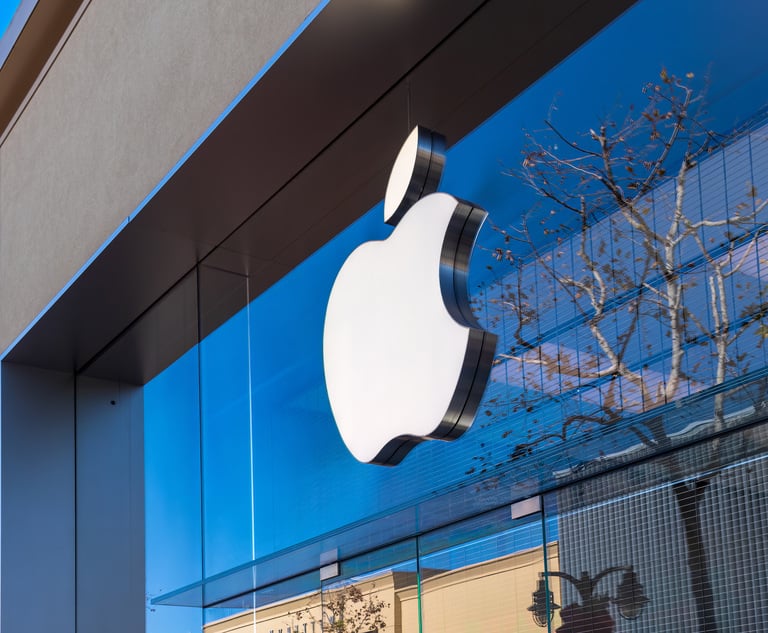Berkeley Ordinance Requiring Cell Phone Retailers to Warn Consumers Will Remain in Place, Ninth Circuit Rules
A Ninth Circuit panel affirmed the District Court for the Northern District of California's denial of a preliminary injunction brought by telecommunications industry group CTIA—The Wireless Association. The organization aimed to stay the enforcement of a 2015 Berkeley ordinance requiring cell phone stores to hand out pamphlets alerting users to radio-frequency exposure.
July 02, 2019 at 06:59 PM
4 minute read
 Judge William Fletcher United States Court of Appeal for the Ninth Circuit
Judge William Fletcher United States Court of Appeal for the Ninth Circuit
Berkeley cell phone purveyors will continue to have to warn consumers about devices' potential to expose users to radio-frequency radiation, following a ruling from the U.S. Court of Appeals for the Ninth Circuit.
On Tuesday, a Ninth Circuit panel affirmed the District Court for the Northern District of California's denial of a preliminary injunction brought by telecommunications industry group CTIA—The Wireless Association. The organization's request for preliminary injunction aimed to stay enforcement of Berkley's ordinance requiring cell phone retailers to distribute pamphlets warning buyers of radio frequency exposure and referring them to user manuals for safe handling instructions.
Gibson, Dunn and Crutcher attorneys for CTIA argued the handouts amounted to compelled speech under the First Amendment and that the ordinance was preempted. Judge William Fletcher of the U.S. Court of Appeals for the Ninth Circuit said CTIA's argument that Berkeley is violating its First Amendment rights does not hold, since the city is referring users to a warning the Federal Communications Commission requires cell phone manufacturers to include.
“The disclosure underlying Berkeley's ordinance is the disclosure the FCC requires cell phone manufacturers to provide to consumers,” Fletcher wrote. “However, CTIA has not sued the FCC. Rather, CTIA has sued Berkeley. Berkeley's ordinance requires cell phone retailers to disclose, in summary form, the information to consumers that the FCC already requires cell phone manufacturers to disclose. The Berkeley disclosure directs consumers to user manuals for the specifics of the information required by the FCC.”
Gibson Dunn attorney Helgi Walker referred a request for comment to CTIA.
“Radiofrequency energy from wireless devices and networks, including 5G, has not been shown to cause health problems, according to the consensus of the international scientific community,” said a spokesperson for the CTIA. “We are disappointed that the city of Berkeley continues to mislead the public.”
Although both CTIA and Berkeley both agree the ordinance is an example of regulation of commercial speech, CTIA also asserted that the Zauderer exception to the rule of Central Hudson established in Zauderer v. Office of Disciplinary Counsel does not apply, because the compelled speech does not prevent consumer deception.
The opinion marks the first time the Ninth Circuit has addressed whether the Zauderer compelled-disclosure test applies outside of a context of deception prevention. Taking cues from sister district courts and the Supreme Court, the panel held that “the governmental interest in furthering public health and safety is sufficient under Zauderer so long as it is substantial.”
In response to CTIA's claims that the compelled disclosure is not “purely factual” within the meaning of Zauderer, the court took the warning line by line and decided each was literally true.
In a dissent in part, Judge Michelle Friedland of the U.S. Court of Appeals for the Ninth Circuit said that although each line might be literally true, consumers will take a more holistic view of the disclosure. “Taken as a whole, the most natural reading of the disclosure warns that carrying a cell phone in one's pocket is unsafe,” Friedland wrote. “Yet Berkeley has not attempted to argue, let alone to prove, that message is true.”
Berkeley City Attorney's Office and Lawrence Lessig, law professor at Harvard Law School, who represented the city in the case, also did not immediately respond to a request for comment.
This content has been archived. It is available through our partners, LexisNexis® and Bloomberg Law.
To view this content, please continue to their sites.
Not a Lexis Subscriber?
Subscribe Now
Not a Bloomberg Law Subscriber?
Subscribe Now
NOT FOR REPRINT
© 2025 ALM Global, LLC, All Rights Reserved. Request academic re-use from www.copyright.com. All other uses, submit a request to [email protected]. For more information visit Asset & Logo Licensing.
You Might Like
View All
K&L Gates Files String of Suits Against Electronics Manufacturer's Competitors, Brightness Misrepresentations
3 minute read
California Court Denies Apple's Motion to Strike Allegations in Gender Bias Class Action

White & Case KOs Claims Against Voltage LLC in Solar Companies' Trade Dispute

Trending Stories
- 15th Circuit Considers Challenge to Louisiana's Ten Commandments Law
- 2Crocs Accused of Padding Revenue With Channel-Stuffing HEYDUDE Shoes
- 3E-discovery Practitioners Are Racing to Adapt to Social Media’s Evolving Landscape
- 4The Law Firm Disrupted: For Office Policies, Big Law Has Its Ear to the Market, Not to Trump
- 5FTC Finalizes Child Online Privacy Rule Updates, But Ferguson Eyes Further Changes
Who Got The Work
J. Brugh Lower of Gibbons has entered an appearance for industrial equipment supplier Devco Corporation in a pending trademark infringement lawsuit. The suit, accusing the defendant of selling knock-off Graco products, was filed Dec. 18 in New Jersey District Court by Rivkin Radler on behalf of Graco Inc. and Graco Minnesota. The case, assigned to U.S. District Judge Zahid N. Quraishi, is 3:24-cv-11294, Graco Inc. et al v. Devco Corporation.
Who Got The Work
Rebecca Maller-Stein and Kent A. Yalowitz of Arnold & Porter Kaye Scholer have entered their appearances for Hanaco Venture Capital and its executives, Lior Prosor and David Frankel, in a pending securities lawsuit. The action, filed on Dec. 24 in New York Southern District Court by Zell, Aron & Co. on behalf of Goldeneye Advisors, accuses the defendants of negligently and fraudulently managing the plaintiff's $1 million investment. The case, assigned to U.S. District Judge Vernon S. Broderick, is 1:24-cv-09918, Goldeneye Advisors, LLC v. Hanaco Venture Capital, Ltd. et al.
Who Got The Work
Attorneys from A&O Shearman has stepped in as defense counsel for Toronto-Dominion Bank and other defendants in a pending securities class action. The suit, filed Dec. 11 in New York Southern District Court by Bleichmar Fonti & Auld, accuses the defendants of concealing the bank's 'pervasive' deficiencies in regards to its compliance with the Bank Secrecy Act and the quality of its anti-money laundering controls. The case, assigned to U.S. District Judge Arun Subramanian, is 1:24-cv-09445, Gonzalez v. The Toronto-Dominion Bank et al.
Who Got The Work
Crown Castle International, a Pennsylvania company providing shared communications infrastructure, has turned to Luke D. Wolf of Gordon Rees Scully Mansukhani to fend off a pending breach-of-contract lawsuit. The court action, filed Nov. 25 in Michigan Eastern District Court by Hooper Hathaway PC on behalf of The Town Residences LLC, accuses Crown Castle of failing to transfer approximately $30,000 in utility payments from T-Mobile in breach of a roof-top lease and assignment agreement. The case, assigned to U.S. District Judge Susan K. Declercq, is 2:24-cv-13131, The Town Residences LLC v. T-Mobile US, Inc. et al.
Who Got The Work
Wilfred P. Coronato and Daniel M. Schwartz of McCarter & English have stepped in as defense counsel to Electrolux Home Products Inc. in a pending product liability lawsuit. The court action, filed Nov. 26 in New York Eastern District Court by Poulos Lopiccolo PC and Nagel Rice LLP on behalf of David Stern, alleges that the defendant's refrigerators’ drawers and shelving repeatedly break and fall apart within months after purchase. The case, assigned to U.S. District Judge Joan M. Azrack, is 2:24-cv-08204, Stern v. Electrolux Home Products, Inc.
Featured Firms
Law Offices of Gary Martin Hays & Associates, P.C.
(470) 294-1674
Law Offices of Mark E. Salomone
(857) 444-6468
Smith & Hassler
(713) 739-1250






